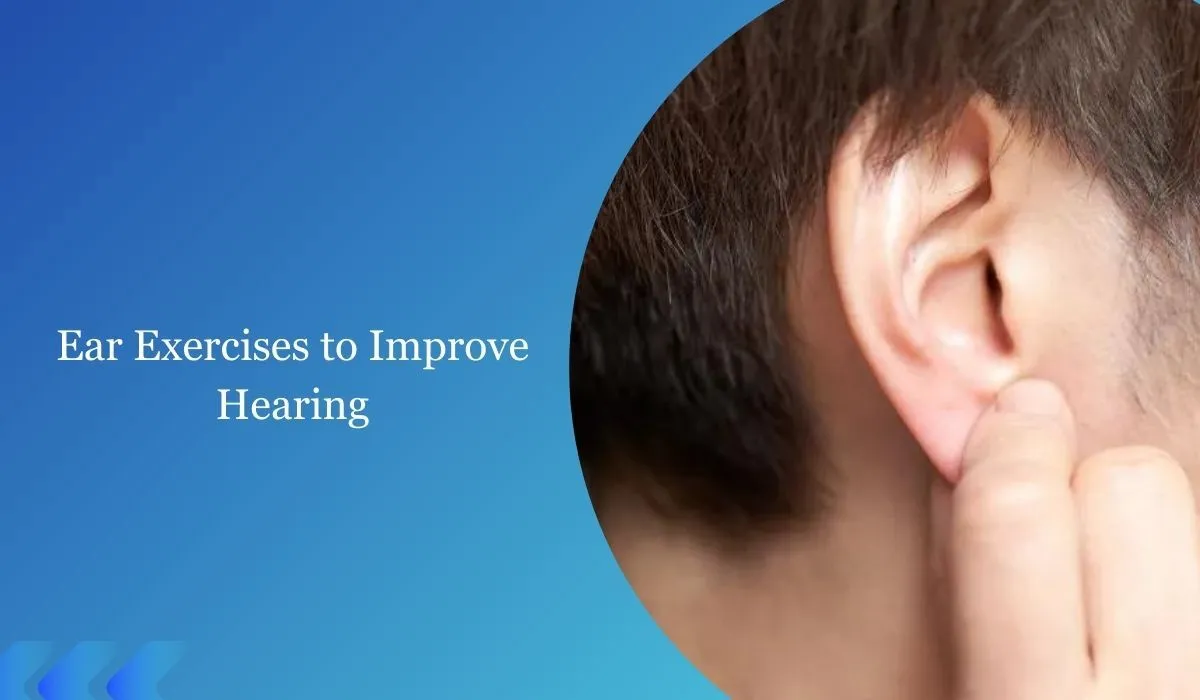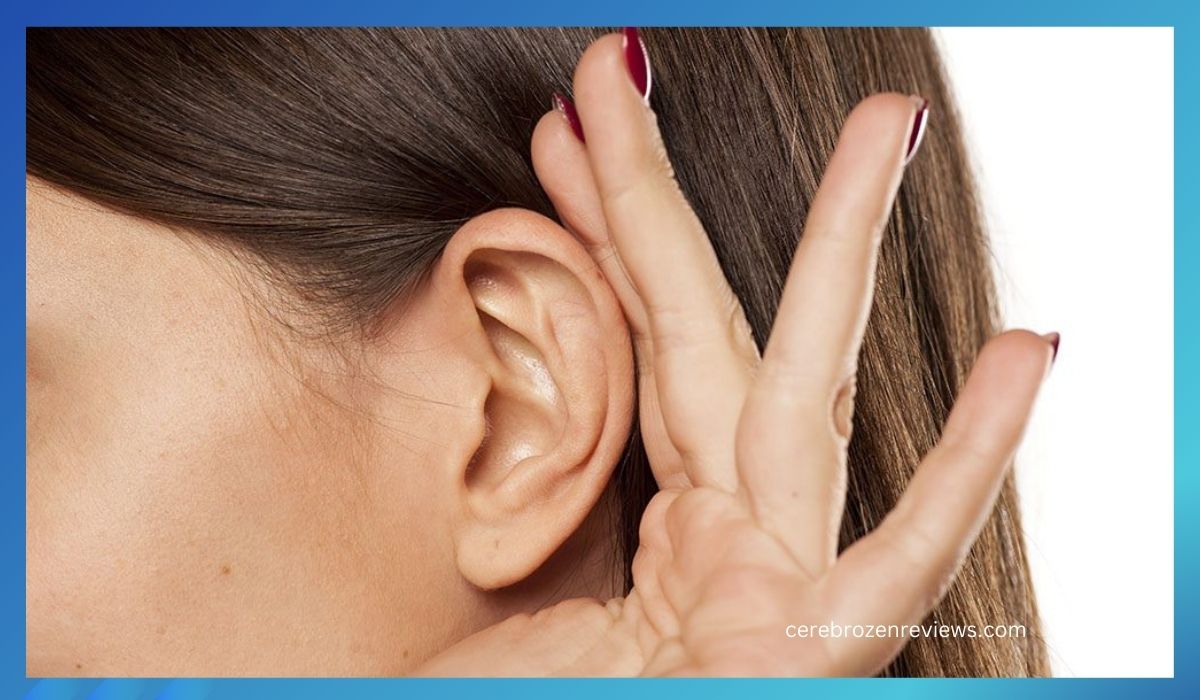Ear Exercises to Improve Hearing: Proven Exercises to Enhance Hearing
Ear exercises like sound discrimination, speech perception, auditory memory, and attention training can improve hearing abilities. Benefits include better speech understanding, enhanced auditory processing, potential hearing loss prevention, and increased confidence in social situations.

Disclaimer: Our recommendations are sincere, driven by the products’ benefits. When you buy through our links, we may earn a commission, backing our testing and development at no extra cost to you.
Our ability to hear and process sounds is a crucial part of our daily lives, allowing us to communicate, enjoy music, and remain aware of our surroundings. However, as we age or due to various factors, our hearing can gradually decline, leading to difficulties in understanding speech, enjoying music, or even feeling isolated from the world around us. Fortunately, there are simple ear exercises to improve hearing that can help strengthen your auditory skills and potentially slow down the progression of hearing loss. In this article, we’ll explore different types of ear exercises and how they can benefit your overall hearing health. Improving hearing with lifestyle choices is the easiest thing anyone can do.
What are Ear Exercises for Hearing?

Ear exercises, also known as auditory training or listening exercises, are a series of activities designed to improve your ability to perceive and process sounds. These exercises can range from simple sound discrimination tasks to more complex auditory memory and attention exercises. The goal of these exercises is to stimulate and challenge your auditory system, ultimately improving your hearing abilities.
Ear exercises to improve hearing can be particularly beneficial for individuals with mild to moderate hearing loss, as well as those who struggle with understanding speech in noisy environments or distinguishing similar sounds. These exercises can also help prevent further hearing decline by keeping your auditory system active and engaged.
Simple Ear Exercises to Try
- Ear Massage: Gently massage your outer ears and earlobes using circular motions. This helps increase blood flow to the ears and relaxes the muscles surrounding the auditory system.
- Finger Drumming: Place your palms over your ears with your fingers pointing towards the back of your head. Then, rapidly drum your fingers on the back of your head for about 30 seconds. This stimulates the tiny hair cells in the inner ear and can improve their responsiveness to sound.
- Yawning and Swallowing: Yawning and swallowing can help equalize pressure in the middle ear and improve overall ear function. Try yawning and swallowing regularly throughout the day, especially when flying or experiencing changes in altitude.
- Listening Games: Engage in activities that challenge your auditory processing skills, such as listening to audiobooks or playing word games that rely on sound recognition. These exercises can help sharpen your ability to discriminate between different sounds and improve your listening comprehension.
- Sound Localization: Practice identifying the direction of sounds in your environment. Close your eyes and ask someone to make a noise while you try to pinpoint its location. This exercise helps improve spatial awareness and can enhance your ability to focus on specific sounds.
- Tuning Fork Therapy: Use a tuning fork to stimulate the auditory nerves and promote better hearing. Strike the tuning fork against a solid surface to produce a sound, then hold it close to your ears and listen to the vibrations. This can help improve auditory sensitivity and perception.
Benefits of Ear Exercises to Improve Hearing
- Improved Speech Understanding One of the primary benefits of ear exercises is improved speech understanding, particularly in noisy or challenging environments. By training your auditory system to better process and focus on speech sounds, you can improve your ability to follow conversations, understand instructions, and engage in social situations more effectively.
- Enhanced Auditory Processing According to Ear Science Institute Australia, regular ear exercises can help strengthen your overall auditory processing abilities, including sound discrimination, auditory memory, and attention. This can lead to improved performance in various activities that rely on auditory processing, such as music appreciation, language learning, or even certain job-related tasks.
- Potential Hearing Loss Prevention While ear exercises cannot reverse existing hearing loss, they may help slow down or prevent further deterioration of your hearing abilities. By keeping your auditory system active and engaged, you can potentially maintain better hearing function for a longer period of time.
- Increased Confidence and Social Engagement Improved hearing and speech understanding can have a positive impact on your overall confidence and ability to engage in social situations. When you can follow conversations and communicate more effectively, you may feel more inclined to participate in group activities, attend events, or simply enjoy interactions with friends and family.
How to Incorporate Ear Exercises into Your Routine
Incorporating ear exercises into your daily routine can be relatively simple and convenient. Many online resources and mobile applications offer a variety of auditory training exercises and programs that you can follow at your own pace. Additionally, some hearing healthcare professionals may recommend specific exercises or provide guidance on how to effectively incorporate them into your routine. Taking supplements like Cerebrozen can help in having a healthy ear. Always make sure to consult a registered medical practitioner and get their opinion.
It’s generally recommended to start with shorter sessions, around 10-15 minutes per day, and gradually increase the duration and difficulty level as you become more comfortable with the exercises. Consistency is key, as regular practice can help reinforce the benefits and improvements in your hearing abilities.
Potential Side Effects and Precautions
Ear exercises are generally considered safe and non-invasive, with minimal risk of side effects. However, it’s important to note that these exercises should not be used as a substitute for professional medical treatment or hearing aids if you have significant hearing loss or other underlying conditions.
If you experience any discomfort, dizziness, or prolonged ringing in your ears during or after performing ear exercises, it’s advisable to stop the exercises and consult with a healthcare professional.
Conclusion
Incorporating ear exercises to improve hearing into your daily routine can be a valuable tool for maintaining and enhancing your auditory skills. By challenging and stimulating your auditory system through sound discrimination, speech perception, auditory memory, and attention exercises, you can potentially improve your ability to understand speech, appreciate music, and engage more effectively in social situations.
While ear exercises may not cure or reverse existing hearing loss, they can serve as a complement to other treatment options and potentially slow down further deterioration of your hearing abilities. With regular practice and patience, these exercises can help you maintain better hearing function and overall communication abilities for years to come.
Remember, if you have concerns about your hearing or experience significant difficulties, it’s always recommended to consult with a qualified healthcare professional for proper evaluation and treatment.
Randi Leigh Carter
Randi Leigh Carter is a licensed audiologist with over 15 years of experience in treating hearing health issues. She holds a Doctor of Audiology (Au.D.) degree from the University of Miami and is certified by the American Speech-Language-Hearing Association (ASHA). As the founder and director of Clarity Hearing Solutions, a leading audiology practice in South Florida, Dr. Carter specializes in the assessment, diagnosis, and treatment of a wide range of hearing disorders, from age-related hearing loss to tinnitus and auditory processing issues. She is passionate about helping her patients improve their quality of life through personalized hearing care. In addition to her clinical work, Dr. Carter is a respected researcher and speaker. She has published numerous articles in peer-reviewed journals on topics such as the impact of hearing loss on cognitive function and the use of advanced hearing technologies. She is also a frequent presenter at national and international audiology conferences, sharing her expertise and insights with her colleagues. Beyond her professional achievements, Dr. Carter is deeply committed to community outreach and education. She volunteers with local organizations to provide free hearing screenings and hearing aid assistance to underserved populations. She also serves on the board of directors for the Florida Academy of Audiology, where she works to advance the field and advocate for better hearing healthcare policies.
